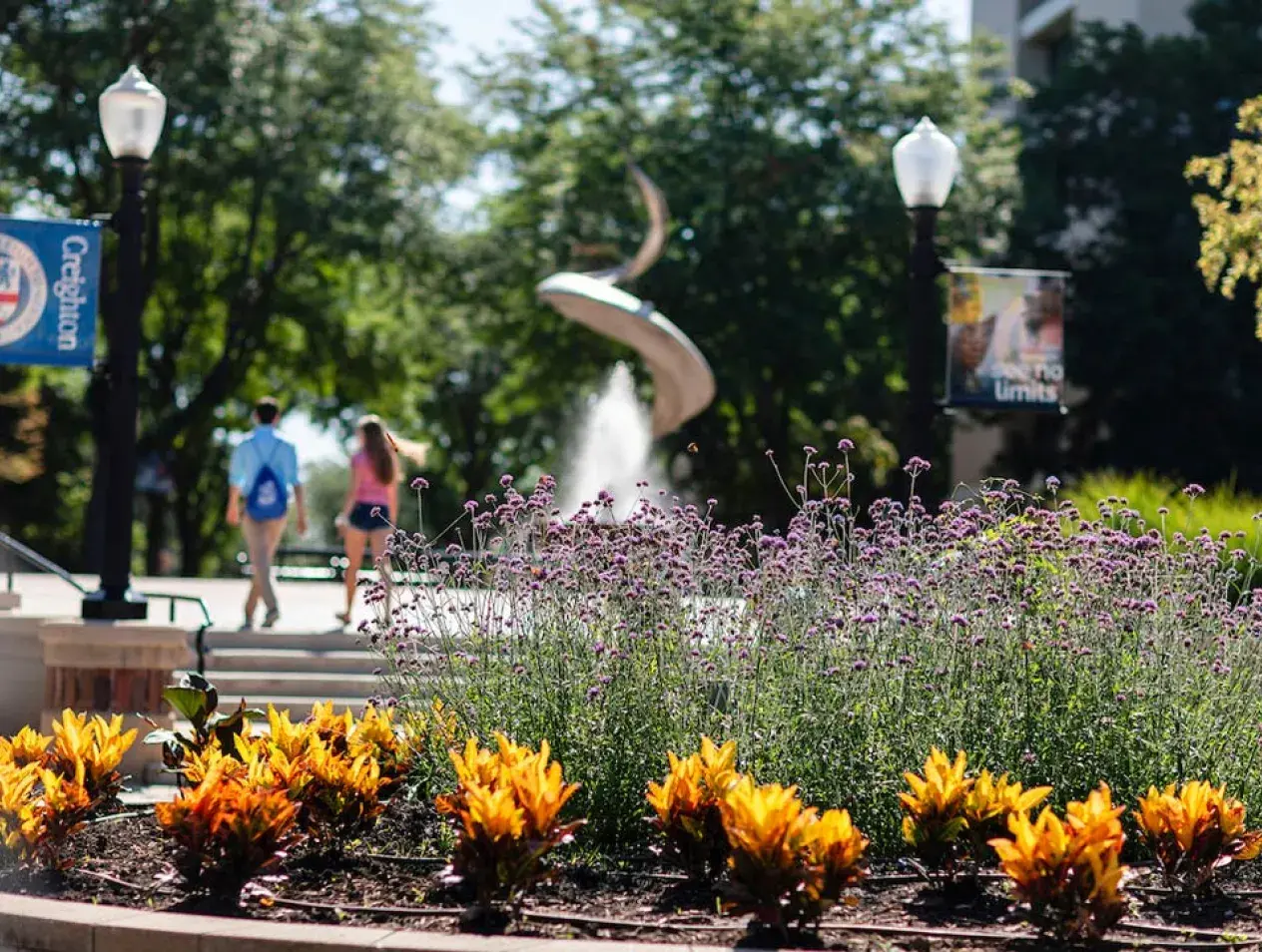
Ware-Johnk Lecture Series on Psychological Science
Ware-Johnk Lecture Series on Psychological Science
Each year, the Department of Psychological Science coordinates a community-wide event highlighting how psychological science impacts the everyday. The Ware-Johnk Lecture Series on Psychological Science hosts a prominent psychological scientist who visits with the Creighton community and share their expertise. The lecture was established and is supported by Dr. Mark Ware and Ms. Connie Johnk, BA '82.

Dr. Ware is a Professor Emeritus of psychological science who was a member of the department from 1965 until 2008, he served as the chair of the department from 2000-2003. While an adult learner, Ms. Johnk took traditional undergraduate psychology courses and served as a teaching assistant in the department. After receiving a bachelor’s degree at Creighton, she obtained an MSW degree from the University of Nebraska Omaha. She went on to a career first in social work and then as a psychotherapist in the Omaha area for over 20 years.
Lecture Series Events
Daniel A. Krauss, JD, PhD, ABPP | Claremont McKenna | Thursday, April 3rd at 5:00pm | Mike & Josie Harper Center, Hixson Lied Auditorium

AMBER Alerts, Sexual Offender Registration and Notification Laws, 3 Strike Laws, and Safe Haven Laws: this talk explores why these laws are so popular despite the data showing them to be empirical failures and unsuccessful at their stated goals. Additionally, these policies are relatively immune to attempts to change the public’s view towards them. The presented research and talk explores the public’s views and support for crime control theater laws as well as whether the public also thinks these policies are effective.
Further, Dr. Krauss discusses additional research that examines psychology-based interventions targeted to change the public’s attitudes toward these laws.
Craig Anderson, PhD | Iowa State University | Thursday, March 14th at 5:00pm | Mike & Josie Harper Center, Hixson Lied Auditorium

Distinguished Professor of Psychology Dr. Craig Anderson presents a lecture exploring the relationship between climate change and global violence based on his research into both the direct and indirect links between increasing global temperatures and incidents of civil unrest, ecomigration, genocide, and war. His research suggests three pathways climate change is related to increasing rates of aggression and violence.
- Through direct effects of hotter temperatures on the human body,
- Through the development of violence-prone individuals due to stressful prenatal and childhood, and
- Through resource competition leading to civil unrest, refugee crises, and war.
View Dr. Anderson's talk *Advance to timestamp 2:15 to see the introduction and the start of the lecture
Carol Gilligan, PhD | Harvard University | Thursday, March 2nd, 2023 | 5:30pm | Mike & Josie Harper Center, Hixson Lied Auditorium

Acclaimed psychologist and professor Dr. Carol Gilligan presents In a Human Voice, a retrospective on her groundbreaking book In a Different Voice and the conclusions she’s drawn from 40 additional years in the field since the book’s publication. Gilligan discusses the following findings:
- The different voice she identified in her book is a human voice, not a feminine voice.
- It differs not from a masculine voice but from a patriarchal voice of gender binaries and hierarchies.
- Where patriarchy is enforced, the human voice becomes a voice of resistance.
This lecture was presented in partnership between the Psychological Science Department and the Women’s and Gender Studies Program.
Kate Sweeny, PhD | University of California, Riverside | Thursday, March 24, 2021 | 5:30 p.m. | Mike & Josie Harper Center, Hixson Lied Auditorium

Uncertainty is stressful for almost everyone. This talk illuminates why that is and how people cope, as well as how they should cope, with stressful uncertainty. For over a decade, Dr. Kate Sweeny and her colleagues have examined how people cope with acute and stressful moments of uncertainty and how doctors should talk to their patients in such circumstances.
Peter Gray, PhD | Boston College | Thursday, Oct 3, 2019 | 6:00 p.m. | Mike & Josie Harper Center, Hixson-Lied Auditorium

Peter Gray, PhD focuses his research on the role of play in human evolution and how children educate themselves, through play and exploration, when they are free to do so. He has expanded on these ideas in his book, Free to Learn: Why Unleashing the Instinct to Play Will Make Our Children Happier, More Self-Reliant, and Better Students for Life (Basic Books). In this talk, Gray will present the logic and evidence behind his claim that the decline in free play is a, if not the, major cause of these deleterious effects on children's and emerging adults' emotional, social, and intellectual well-being. He will also describe ways by which families, neighborhoods, and communities can restore children's opportunities for free outdoor play.


